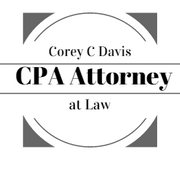Should You Wait to File Bankruptcy Until After Taxes?

If you’re considering filing for bankruptcy, you may be wondering whether it’s better to wait until after filing taxes. Oftentimes, it’s still worthwhile to be up-to-date with taxes, even when facing serious debts. Understanding the basic principles of how tax law coincides with the two common types of bankruptcy will help you make an informed decision.
Chapter 7 Bankruptcy & Taxes
When you file for chapter 7 bankruptcy, the court gains control of your assets so that they can be distributed among creditors and other agencies. If there isn’t enough money to pay all of your debts after the funds have been exhausted, they’ll be absolved.
Under tax law, any owed taxes are considered a priority and will be paid off first. If you’re due to receive a tax refund after the court has already seized your assets, the refund may be used to pay off debts. In some cases, however, a trustee could see if the return can be exempted in the bankruptcy filing.
 To minimize complications, you should file for chapter 7 after you’ve already received the previous year’s tax return. Yet, since it’s still considered a source of recent income, only use the return to purchase essentials, and keep records of your receipts.
To minimize complications, you should file for chapter 7 after you’ve already received the previous year’s tax return. Yet, since it’s still considered a source of recent income, only use the return to purchase essentials, and keep records of your receipts.
Chapter 13 Bankruptcy & Taxes
Unlike chapter 7 bankruptcy, the goal in filing for chapter 13 is to pay off debts in full over time. Certain unpaid debts could be discharged, but typically, this process involves a long-term payoff plan so that you can regain financial stability.
Yet, chapter 13 is similar to chapter 7 in that tax law still abides: taxes are considered a priority and must be paid off first. And again, funds received via tax returns may also be seized to pay off debts unless they’ve been declared exempt.
As with chapter 7, completing your taxes before filing for chapter 13 can keep the case running smoothly. Moreover, if you have a lien due to back taxes owed, the chapter 13 filing can establish a payment plan to address the debt. In some scenarios, owed taxes may be forgiven without payment, depending on how much you’re taking home after debt repayments are removed from your income.
If you need help navigating the complexities of tax law, allow Corey C. Davis, CPA in Kerrville, TX, to help. Davis and his team have been providing legal and accounting support to clients throughout Texas Hill Country for more than a decade. Find out more about their services, including IRS representation and tax preparation, by visiting their website or call (830) 257-8800 with any questions about how they can help.
About the Business
Have a question? Ask the experts!
Send your question

